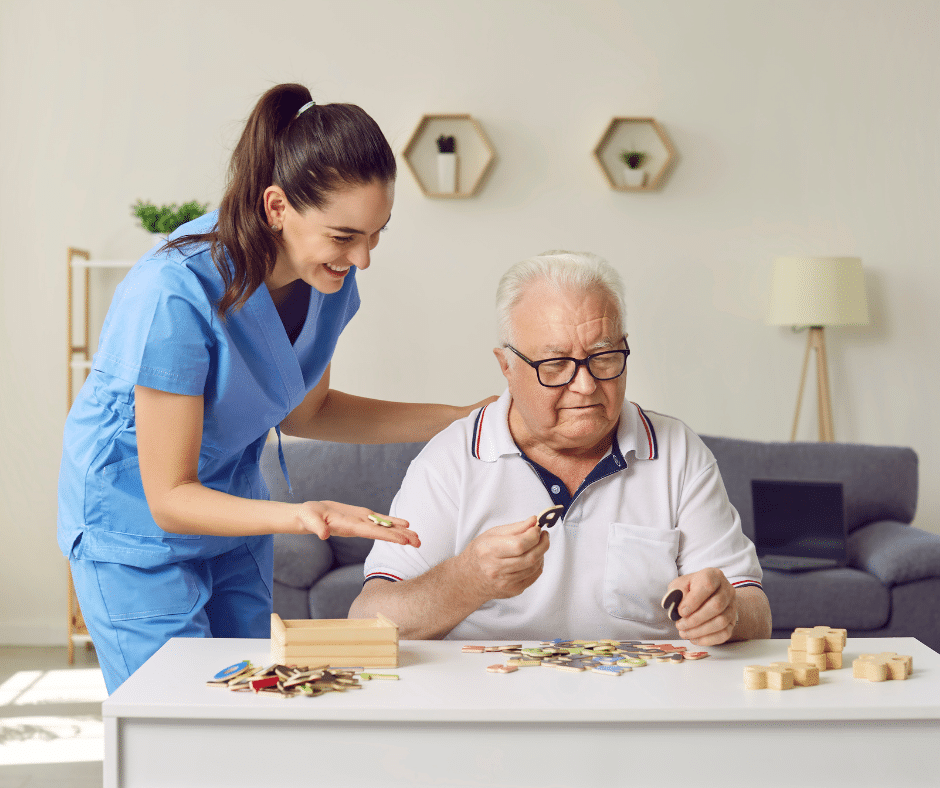For seniors, being diagnosed with Alzheimer’s disease is emotionally and physically challenging, which is why it’s critical to allow them to remain in a comfortable and familiar setting for as long as possible. This means that as the disease progresses, changes may need to be made to their home. Loved ones may wonder who they can turn to for help. The good news is that Alzheimer’s care can provide tips and tricks for aging in place safely, as well as a variety of other supports for both loved ones and seniors navigating the disease.
Safety First
As Alzheimer’s disease progresses, safety becomes paramount. The good news is that making simple changes can reduce the risk of accidents and injuries, providing loved ones with peace of mind. For instance, installing handrails in the halls and grab bars in the bathrooms can help seniors stay steady. Additionally, loved ones should remove things that might cause seniors to trip, like loose rugs and clutter, as well as lock cabinets that hold dangerous items like medicines, cleaning supplies, and sharp objects.
At the same time, having home care by seniors’ side gives loved ones the chance to take a break when needed and provides seniors with increased socialization. Also, home care is able to monitor seniors’ actions to ensure that the current safety measures are enough.
Focus on Minimalism
Seniors with Alzheimer’s frequently struggle with cognitive tasks and can easily feel overwhelmed by too much stuff or a complicated environment. Making things easier around the house can help with stress and confusion. Decluttering, putting things away in a way that makes sense, and removing visible clutter are all examples of this. Loved ones may also label closets, drawers, and rooms with clear, large-print signs, which can also make it easier for seniors to get around.
Create Familiarity
Familiarity can bring comfort and a sense of safety, which is key for seniors diagnosed with Alzheimer’s disease. This is one of the reasons why aging in place is key. For instance, Alzheimer’s care encourages seniors to continue with their old routines and hobbies as much as possible. Also, when making the changes mentioned above, loved ones should do so in smaller parts so as not to confuse seniors inadvertently.
Improve Lighting
Not having enough light can make people with Alzheimer’s more confused and raise their risk of falling. Therefore, it is important to make sure that the whole house has enough lighting, especially in the halls, stairs, and entryways. Getting some natural light during the day can also help seniors sleep and feel better. With home care by their side, they can be encouraged to sit on the porch or go for a walk to enjoy natural light even more.
Introduce Technology
Technology can be a useful tool when trying to help seniors remain independent despite their Alzheimer’s diagnosis. Motion sensors, smart locks, and video monitoring systems are some examples of smart home gadgets that can give loved ones peace of mind. Additionally, loved ones and Alzheimer’s care can teach seniors to access apps that remind them to take their medications, alert them to appointments, and provide them with easy access to emergency services when needed.
Supporting seniors with Alzheimer’s as they strive to stay in their own homes takes careful thought and planning, but it can be accomplished when loved ones and home care work together.


